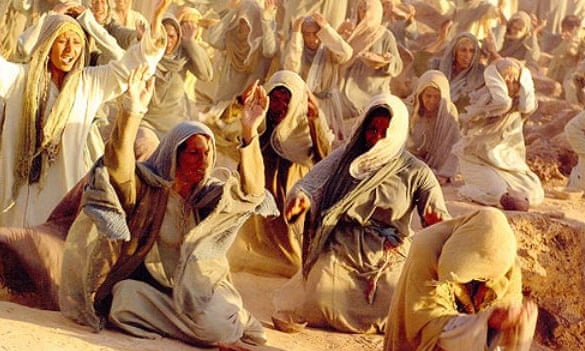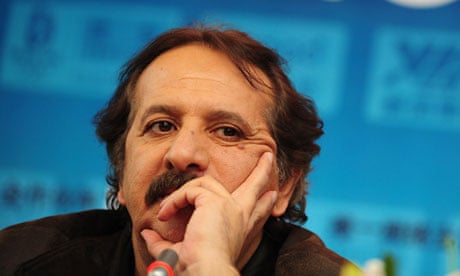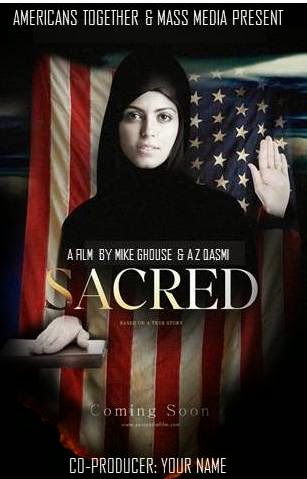A new Iranian film on Prophet Muhammad (pbuh) is scheduled for premier this spring, and another mega film on the prophet with a $1 Billion budget is announced by Qatar. Courtesy of Newsweek and the Guardian .
We thank the producer for not depicting Prophet Muhammad in the movie. As a moderate progressive Muslim, I am reluctant to give an image to the Prophet or God and fight the human need for symbolic representation. As the prophet advised, as any one messenger would advise the same; that is to to stay focused on his message and not resort to worshiping him or what he looked like. It is the message that is lasting and not the physical aspect of humans.
This is one of the greatest attributes of the prophet that he did not want his picture or bust be made. He lived his life as an example of humility, the humility that builds bridges and brings people together for peace and harmony. Unfortunately a handful of Muslims have attempted to do the opposite of it and fortunately, God willing, we are dealing with that issue in our upcoming film – Sacred. How many of us would not want our picture and be recognized for whatever we have done from our face to recognition of our achievements.
The Medium of film is nothing more than a good narrator telling a powerful story and letting people imagine their own characters and in the descriptive scenarios. No matter how much we fight, conjuring up our own personal images of the people in the stories we hear is human and natural, that is our way of learning and relating with things.
There are about 250 films on Jesus, 120 on Moses, and 60 on other prophets, but only three on Prophet Muhammad (pbuh) made by Mustafa Akkad, MIchael Wolfe and BBC. There will be more films made on the prophet, and one of these days someone will portray and play his role. What are we going to do about it? Nothing! I am not in favor though for the reasons given above.
It is like the Quran translations – 2 out of 25 were evil translations. One of them is partially corrected, the other one was written in 1142 AD and nothing can be done about it.
Following the example of Prophet – we have to be the Amins first before we are Muslims, we can alleviate many a conflicts in the society. We have to learn to deal with them. There is no compulsion, and it goes both ways. If we can learn to respect the otherness of others and accept the God given uniqueness of each one of us, then conflicts fade and solutions emerge.
I hope to see the film – if not I am heading to Iran in March, and will see it there and if the sets are still there, I will visit them as well.
Link to these stories – http://worldmuslimcongress.blogspot.com/2015/01/film-on-prophet-muhammad-pbuh-by-iran.html
Mike Ghouse
www.WorldMuslimCongress.com
www.MikeGhouse.net
# # #
Two pieces from News week and the guardian.
http://www.newsweek.com/release-prophet-muhammad-biopic-divides-sunni-and-shia-muslims-303314
Biopic of Prophet Muhammad Divides Sunni and Shia Muslims
Biopic of Prophet Muhammad Divides Sunni and Shia Muslims

-
An examination of the evidence finds the idea to have…
Iranian film on prophet Muhammad set for premiere

=================
Qatar and Iran on rival missions to make films about prophet Muhammad

=================
Sacred – a great American movie in the making
Sacred Film is about a successful real life event set in Mulberry, Florida coupled with a compelling romantic story built around the Quran burning incident. It is filled with human aspirations, fears, suspense and actions of a typical Hollywood Film.
Shooting will begin in March for a September 11 release. I will be happy to give a presentation to your group.


